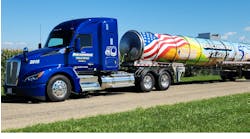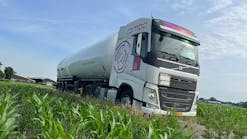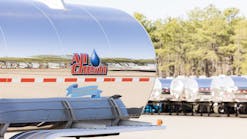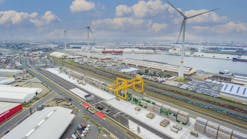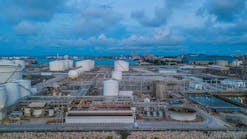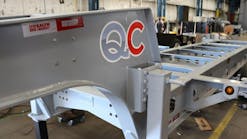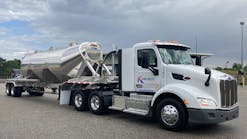Hamburg, Germany-based Hoyer Group announced positive results for the 2010 financial year. The group has recorded an increase in revenue due in large part to the marked improvement in economic conditions.
Thanks to a 16% revenue increase in 2010, Hoyer’s annual sales figure of 990 million Euros was the highest in the company’s history. As a result, Hoyer was able to compensate for the revenue decrease of 2009 and consolidate its position as a major global provider of logistics systems. Earnings before taxes rose by 28% to 26.4 million Euros.
Investment spending in 2010 amounted to just under 23 million Euros (previous year: 33.1 million) and was funded entirely from operating cash flow. The group increased the size of its tank container fleet by 2,410 containers to 22,849. The equity ratio again rose and now stands at 36%.
“We had already begun to drive forward internal structural change in 2009,” said Thomas Hoyer, chairman of Hoyer’s Advisory Board, at the presentation of the 2010 annual report. “The decision to pay down our debts and strengthen our cash flow rather than making investments has proven itself, as can be seen in our positive figures for 2010.”
The chemical industry, one of Hoyer’s key customers, staged a recovery in 2010, so demand for transportation of chemicals increased, particularly in Europe. Hoyer was also able to substantially boost the share of intermodal shipments and gain some major new business.
The firm’s Supply Chain Solutions (SCS) unit has become a pillar of its chemicals business. SCS makes it possible for Hoyer to act as a full-service provider by offering a range of additional services. These include contract logistics, plant logistics, storage, materials handling, and consulting services.
An example of this approach: the outsourcing contract awarded in 2010 by a German chemical manufacturer. Under terms of the contract—one of the largest single orders Hoyer has ever received— Hoyer is responsible for all the company’s deliveries from its European production plants to customers.
Establishment of a subsidiary in Russia marks yet another milestone for Hoyer’s chemical logistics business. This will provide Russian customers and service providers with a Hoyer point of contact. At the same time, the firm is strengthening its position in Russia and the CIS states.
In 2010, Hoyer also announced the acquisition of all shares in European Liquid Drumming (ELD), the joint venture in which Hoyer previously held a 50% share. ELD owns and operates modern filling and storage facilities for IBCs, drums, and small containers in Oosterhout, the Netherlands.
Hoyer’s gas logistics business performed satisfactorily in 2010 and achieved further improvements in efficiency thanks to tight cost management. As a result, the company won a number of large tenders in the industrial gas cylinder business in Germany and Eastern Europe. However, overall capacity utilization of the gas container fleet in Europe remained unsatisfactory.
In 2010, Hoyer also successfully established itself as an outsourcing partner for tank container services to the food industry, concluding new long-term contracts for silo and liquid products, particularly in the United Kingdom and southeastern Europe. The company experienced strong growth in its business with heatable IBCs for transporting temperature-sensitive products. Hoyer combined the marketing of bulk and IBC containers in 2010, which resulted in optimized purchasing processes. Customers now benefit from being able to order transports from a single source. Hoyer has a total of 19,000 IBCs at its disposal for its food and chemicals business.
Market conditions put the margins of the petroleum transport business under considerable pressure. Nevertheless, Hoyer succeeded in stabilizing its revenue in 2010. Hoyer also succeeded in making quality improvements. Its bitumen transport business is in the hands of specialist company Scharrer & Andresen. With a fleet of around 150 special vehicles, Scharrer & Andresen is a leading provider in this field.
Hoyer continued to expand its SHEQ (safety, health, the environment, and quality) system in 2010. The company defined three core elements of a sustainability policy within the framework of SHEQ: social responsibility, environmental protection, and economy. Hoyer’s sustainability policy, published for the first time under these main headings, is aimed equally at employees, partners, and customers.
Despite the encouraging recovery in 2010, Hoyer’s management remains cautious about future market prospects. It remains difficult to assess long-term consequences of political unrest in the Arab world and how this will affect the price of oil. Instability of European nations adds to this uncertainty.
